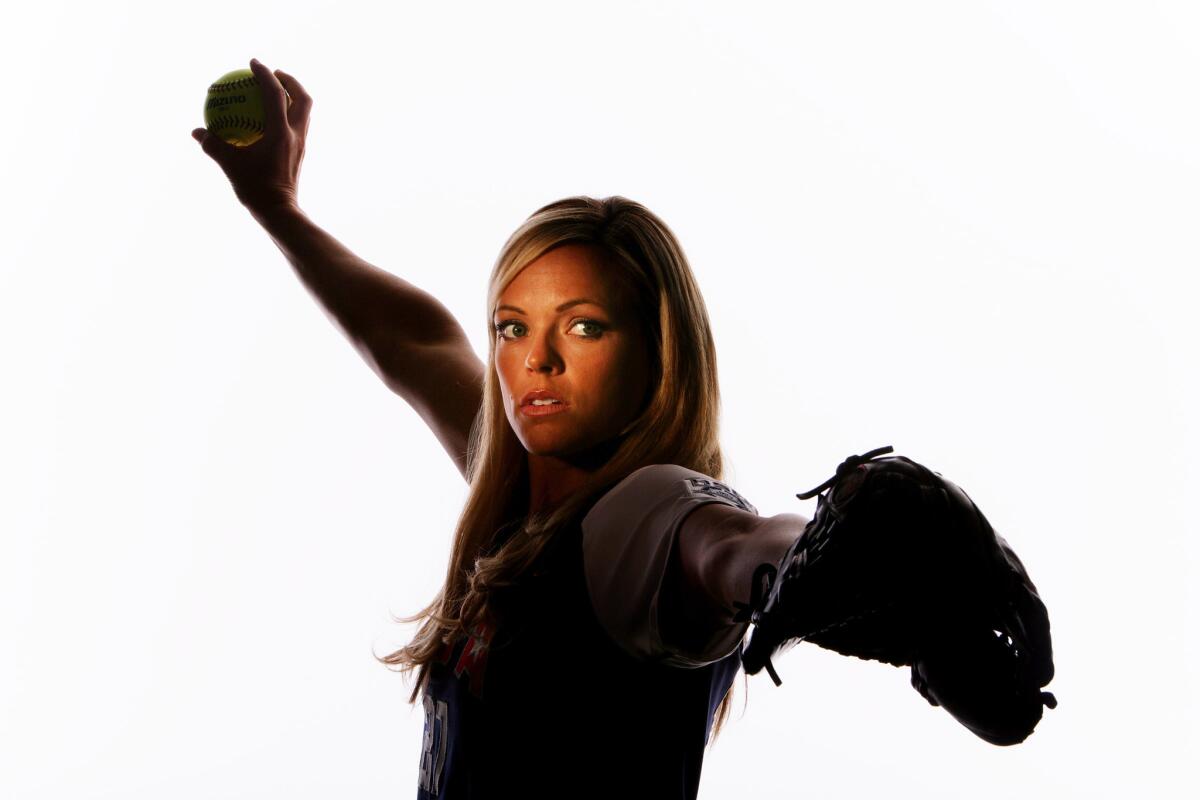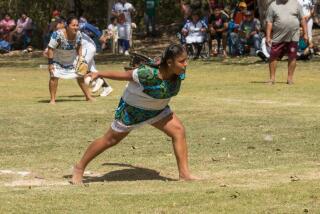5 Questions: Sports prepared her for life’s curveballs

- Share via
Jennie Finch began playing softball as a kid, and her passion and talent for the sport carried her all the way to the U.S. National Team and, in 2004 and 2008, the women’s U.S. Olympic team. A star pitcher, Finch led her fellow Olympians to win gold and silver medals.
In 2010, Finch announced her retirement from the game to focus on her family. Now, the 31-year-old mother of two has written a book, “Throw Like a Girl,” in which she relates the lessons she learned playing softball and her desire to bring the world of sports to more young women.
What values did sports instill in you as a young girl and a teenager?
It helped me find confidence, not only on the field in seeing how hard work pays off, but also in knowing that ultimately, there is only so much in our control. You can control your attitude and your effort, but you can’t always control the circumstances — only how you react to those circumstances.
It also gave me friendship and sisters, self-confidence in my body image and knowledge that my body is a machine and it can do so many amazing things. I discovered that I can be strong and healthy, that I can overcome my fears and my doubts through practice and determination.
Statistically speaking, it’s mind-boggling how much sports influences young women’s lives, from teen pregnancy rates to confidence issues to body image issues and self-esteem.
With all these benefits, why do you think there’s still so much room for growth when it comes to including girls and women in sports?
So many young women are afraid to play sports because of their body image, so I think it’s a matter of making it positive for them. We need to encourage young kids in general — males and females — not only to play competitive sports but to just be active and be fit and doing their best.
In your book, you write about your own struggles with body image as a girl. How did you get through that?
I was always bigger than everybody in my grade — there were only two guys that were taller than me in high school. I couldn’t find flat enough shoes. And my shoulders were bigger than everybody else’s. But in high school, through sports, that’s where I fit in and found my identity and was able to embrace my body.
Still, I don’t think I truly got over it until I was in college and I was around other tall women. It wasn’t easy, and being a woman, I still battle it. But I think it comes down to just remembering what truly matters in life.
Do you incorporate sports into your fitness routine these days?
I don’t have a set routine at this point — my cardio is often jumping on the trampoline with my 6-year-old or playing soccer. But I do try to be active with my kids and play with them, and to get to the gym as much as I can.
Last fall I ran the New York City Marathon, and I had a running group that was so inspiring. There were so many shapes and sizes and ages — I wish young kids could be exposed to that. It’s not only one size or one shape that’s athletic, there’s physical activity for everybody.
How do you apply the lessons you learned through sports — like confidence and rolling with the punches and doing your best — to your life now?
I think it all comes down to your outlook. For instance, I’m getting back into commentating [for EPSN], so dealing with that and trying to live up to expectations and wanting to do so well, I just try to keep in mind that all I can be is the best I can be, and then I can go to sleep at night and rest well knowing I’ve done everything I can.
Being a mother has put more perspective in my life. To them, my only job is being their mom. At the end of the day I’m always a winner to them, and that has been a beautiful blessing.
More to Read
Go beyond the scoreboard
Get the latest on L.A.'s teams in the daily Sports Report newsletter.
You may occasionally receive promotional content from the Los Angeles Times.






